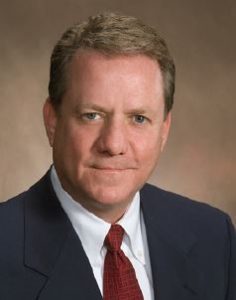Typically the best things about summer for oil and gas operators include a shining sun, an abundant time to spend with friends and family, and Lord willing, the lawnmower is broken and lawmakers in Austin, Santa Fe, and Washington D.C. are typically in recess.
Unfortunately we have yet to find out if those things will be the case.
The Texas Legislature at the time of this writing continues to be at an impasse determining how best to provide Texans with tax relief and stands on the brink of more special session to ensure that other priority items like education are accomplished.
For 140 days between January and the end of May, the Texas Legislature worked to address the challenges they saw over the past two years and prepare the Lone Star State for what it may see in the next 18 months. This included the adoption of a more than $300 billion budget that included vital funding for the Railroad Commission of Texas and the Texas Commission of Environmental Quality. This session the Texas Legislature also passed the reauthorization of the Public Utility Commission of Texas as well as the Office of Public Utility Counsel and ERCOT, the organization responsible for grid operations for the majority of Texas.
This Legislature did, emphatically, support the state’s authority to regulate several issues rather than allow a patchwork of ordinances adopted by local governments including a broad pre-emption bill, a bill that makes the state the primary regulator on greenhouse gas emissions, a bill that prohibits local governments from adopting climate charters, and a bill that protects the energy choice of Texas consumers. All of the following bills were passed and sent to the Governor.
House Bill 2127 by Representative Dustin Burrows in the House and sponsored by Senator Brandon Creighton in the Senate would prohibit a municipality or county from adopting, enforcing, or maintaining an ordinance, order, or rule regulating conduct in a field of regulation occupied by a provision of certain statutory codes unless the municipal or county regulation was expressly authorized by another statute.
Senate Bill 784 by Senator Brian Birdwell and sponsored by the Permian Basin’s own Brooks Landgraf, ensures, to the extent not preempted by federal law, that the state has exclusive jurisdiction over the regulation of greenhouse gas emissions in the State of Texas. The bill further clarifies that a municipality or other political subdivision may not enact or enforce an ordinance or other measure that directly regulates greenhouse gas emissions.
Senate Bill 1860 by Senator Bryan Hughes and sponsored by Dean of the Permian Basin delegation and the Texas House, Speaker Tom Craddick, ensured that local governments could not adopt or enforce climate charters as some local governments had sought to do across the country and even in Texas.
Last, but certainly not least, was the passage of Senate Bill 1017, also by Senator Birdwell and sponsored by Rep. Brooks Landgraf, which protected energy choice for consumers across the state. In light of those that oppose oil and gas production and use, this bill was filed to ensure that political subdivisions are prohibited from adopting or enforcing regulations that limit access to specific fuels sources or prohibit the sale of engines based on their fuel source.
In addition to those successes, PBPA fought hard to oppose DC style legislation that we have seen across the border in New Mexico, including the effort to pass a “Green Amendment” which would have authorized causes of action for environmental issues as well as many other pieces of legislation that would have stymied or prohibited oil and gas development.
This interim we also expect to have to work to ensure that the legislation passed is implemented by state agencies in the manner with which it was adopted and not utilized to penalize taxpayers, businesses, or the oil and gas industry. This includes rulemaking at the RRC and the TCEQ, as well as rulemaking at the PUC to enhance transparency, encourage the construction of transmission, and to ensure affordable, reliable, thermal generation and much more.
We greatly appreciate the work and support by PBPA and our members and look forward to working to deliver more success in the Fall.










